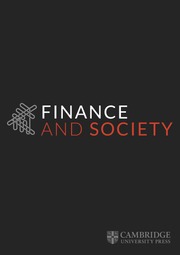No CrossRef data available.
Article contents
The economic imagination
Published online by Cambridge University Press: 09 November 2023
Extract
To apply the term ‘magical’ to modern economic thought is to suggest that there remains within it an unassimilated and unexamined residue of irrational thought. Further, it is to hold that this remnant persists despite the discipline's century long attempt to create a ‘pure’ form of economic science. The specific instance of irrationality to which we refer is perfectly visible but systematically overlooked because it exists in economics' most basic assumptions: not only the assumptions about the causal mechanisms that determine human action, but even more in what is increasingly acknowledged to be the theoretical Achilles heel of economics, the concept of the market itself.
- Type
- Forum: Money’s other worlds
- Information
- Creative Commons
- This is an Open Access article, distributed under the terms of the Creative Commons Attribution-NonCommercial-No Derivatives licence (http://creativecommons.org/licenses/by-nc-nd/4.0/), which permits noncommercial re-use, distribution, and reproduction in any medium, provided the original work is unaltered and is properly cited. The written permission of Cambridge University Press must be obtained for commercial re-use or in order to create a derivative work.
- Copyright
- © 2015 The Author(s)


